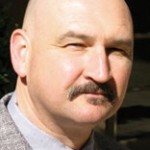Games People Play

Time for another trip down memory lane or, for most of you, probably another history lesson. Let’s start this one in 1968.
1968 was the year American singer-songwriter Joe South released a song called “Games People Play,” which was actually a protest song whose lyrics spoke against hatred, intolerance and inhumanity among people during the social upheavals of the 1960s. I have a feeling the song might be as relevant today as it was 53 years ago.
“Games People Play” went on to win the Grammy for Best Contemporary Song and for Song of the Year in 1968. Lest you think that Joe South was one of the “one-hit wonders” of the 1960s, think again. South had his first top 50 hit in 1958 with that song we all know and love, “The Purple People Eater Meets the Witch Doctor.” How do you top that?
 Joe South topped it by becoming a prominent sideman, playing guitar on Bob Dylan’s Blonde on Blonde album, as well as Aretha Franklin’s Chain of Fools, and Simon and Garfunkel’s second album, Sounds of Silence. He also continued to write such epic songs as “YoYo,” which became a hit for the Osmonds. Whatever works, right?
Joe South topped it by becoming a prominent sideman, playing guitar on Bob Dylan’s Blonde on Blonde album, as well as Aretha Franklin’s Chain of Fools, and Simon and Garfunkel’s second album, Sounds of Silence. He also continued to write such epic songs as “YoYo,” which became a hit for the Osmonds. Whatever works, right?
Actually, Joe South’s most successful commercial composition was Lynn Anderson’s major hit, “Rose Garden,” which was a hit in 16 countries and won Anderson a Grammy for her vocals and earned South two Grammy nominations for Best Country Song and Song of the Year. Not bad for a guy who started out singing about purple people eaters and people playin’ games.
Speaking of people playin’ games, I think it’s time the contact center industry as a whole revisited gamification as a solution whose time has come in this era of the post-pandemic challenges of the work-from-home (WFH) workforce. Employee safety was and is of paramount importance in the contact center and decisions were made in 2020 with that singular goal in mind. Now that the dust is starting to settle, and we can collectively sit back and calmly evaluate the industry terrain, we see what may have been overlooked in the wake of management decisions that had to be made spur-of-the-moment and without regard for the long-term implications.
While employees were kept safe for the most part by the decision to send workers home to work, one area that may have been overlooked in the name of expedited decision-making is employee engagement. Today, however, we have the luxury of being able to look back and examine where decision flaws may have existed.
As long as we’re revisiting history in this column, let’s also revisit the history of gamification, which dates back to 1974. I first learned of the use of gamification in the workplace from a professor at the University of Wyoming, whom I met in 2005. Brooks Mitchell, Ph.D., told me of an experiment that took place in a factory setting in 1974. The problem at this factory was absenteeism. Sound familiar?
Anyway, to see if a game could impact employee motivation one way or another, an experiment was concocted that involved a control group, in which nothing would change, and an experimental group who would be the gamification participants.
In the experimental group, each employee who showed up to work their scheduled shift was given a playing card when they clocked in. At the end of the week, the employee who had the best poker hand was given a $20 bonus. Remember, $20 was a pretty decent amount of money in 1974.
The experiment lasted for six weeks, and at the end of the study period, absenteeism in the experimental group was down 18%. In the control group nothing had changed and absenteeism continued to be a problem. This was the first evidence of gamification being an effective employee engagement tool.
The original experiment was replicated in 1984 in the city of Garland, Texas. The problem in this case was Monday morning absenteeism among city employees. The same card game experiment was used, and at the end of the study period, Monday absenteeism was down 35% in the experimental group versus no change in the control group. Further proof that gamification works.
In the post-pandemic contact center, many issues such as absenteeism seem to have been partially resolved with the advent of the work-from-home (WFH) workforce, as evidenced by the results of research conducted by Saddletree Research in conjunction with the not-for-profit National Association of Call Centers (NACC) during the third quarter of 2020. As part of this project, we asked survey participants if they had realized any particular benefits of having a WFH workforce. The results are illustrated in Figure 1.
The data indicates that almost half of the North American contact center industry experienced reduced absenteeism, among other benefits, as a result of their WFH workforce. In the post-pandemic era, however, we see a new set of challenges emerging. Specifically, how does the industry keep its newly remote workforce engaged?

According to Yitzy Tannenbaum, Head of Product Marketing at NICE, “The traditional in-house contact center was usually a vibrant place, where group activities, team collaboration and motivational activities were followed by public recognition. Peer assistance was readily available and there was a sense of community and loyalty to the company. WFH models led to employees feeling isolated and less engaged with the call center and company.”
We know that gamification works as an employee engagement tool and, in fact, the industry has been responding to that reality for some time. Our research at Saddletree Research has been tracking adoption of gamification in the contact center since 2019. Figure 2 illustrates the growth of gamification adoption, and extends that growth trend for the next three years.
“Gamification is a powerful tool in motivating workforces and breathing life into the disconnected, remote atmosphere created by WFH models,” explains NICE’s Tannenbaum. “It provides engaging activities that foster friendly competition, which in turn builds team cohesion and motivates employees to meet their goals. Things like quizzes, competitions and other customizable team activities where employees earn points that can then be redeemed for a variety of rewards and prizes, including time-off and priority in shift scheduling, has been proven to improve the effectiveness of employee onboarding, learning and general performance. All this makes the pursuit of excellence a fun and rewarding activity that drives superior execution and engagement across your call center.”
As the data above indicates, gamification in the contact center industry is gaining momentum, with deployments more than doubling in the last two years. I believe, however, that future growth will far outperform the growth of the past two years. Gamification in the contact center is rapidly evolving from a nice-to-have to a must-have. The games people play today will be the games that keep employees engaged in the years ahead.
Paul Stockford is Chief Analyst at Saddletree Research, which specializes in contact centers & customer service.
– Republished with permission from Contact Center Pipeline, http://www.contactcenterpipeline.com






